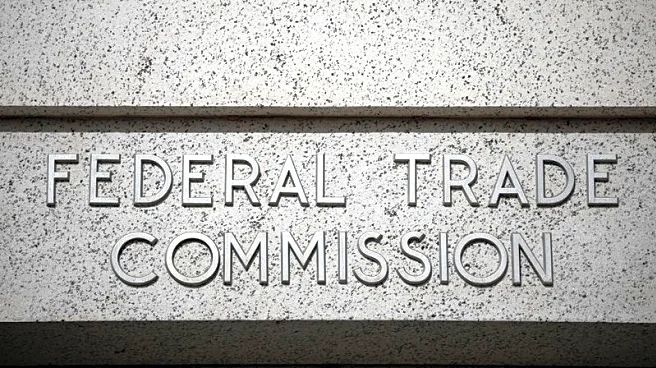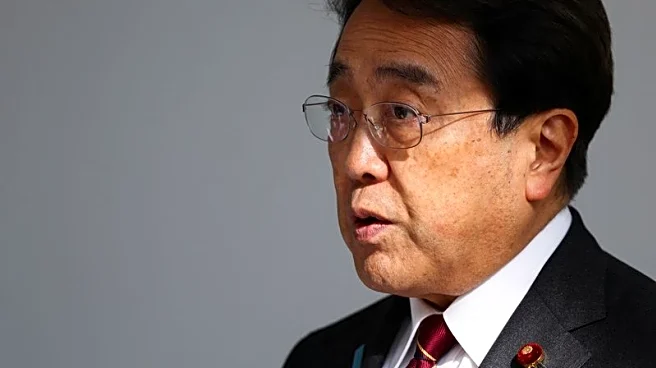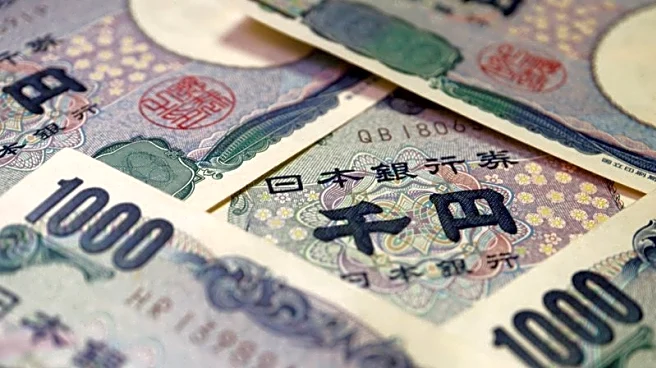What's Happening?
President Trump's tariff strategy appears to be influencing Japanese companies to shift more production to the United States. Recent data from the Bank of Japan indicates a decline in Japan's export volume to the U.S., reaching its lowest level since 2021. However, Japanese firms are compensating by ramping up production in their U.S. subsidiaries. This shift is accompanied by a significant increase in foreign direct investment (FDI) from Japan into the U.S., which is projected to reach a record high this year. The U.S. is expected to receive 47% of Japan's total outbound FDI, marking an all-time high. A recent trade deal between the U.S. and Japan reduced tariffs from 25% to 15%, with Japan committing to invest $550 billion in key U.S. industries, including energy, semiconductors, and pharmaceuticals.
Why It's Important?
The shift in production and investment from Japan to the U.S. underscores the impact of President Trump's tariff policies on global trade dynamics. This development could bolster U.S. manufacturing and economic growth, as Japanese companies increase their presence in the American market. However, the influx of investment and production may face challenges, such as legal uncertainties surrounding the tariffs and a shortage of skilled labor in the U.S. manufacturing sector. The commitment from Japan to invest in U.S. industries could enhance technological and industrial capabilities, but the realization of these investments remains uncertain due to potential legal and logistical hurdles.
What's Next?
The future of U.S.-Japan trade relations will likely depend on the stability of the tariff agreements and the ability of the U.S. to address labor shortages in key industries. The ongoing court challenges to the legality of Trump's tariffs could influence the willingness of Japanese companies to make long-term investments. Additionally, the U.S. will need to develop strategies to attract and train a skilled workforce to support the anticipated growth in manufacturing and other sectors. The success of these efforts will be crucial in determining the long-term benefits of the trade deal and the sustainability of increased Japanese investment in the U.S.
Beyond the Headlines
The broader implications of this shift include potential changes in global trade patterns and the strategic realignment of international business operations. As Japanese companies increase their U.S. presence, there may be a corresponding decrease in their investments in other regions, such as Europe. This could lead to a reconfiguration of global supply chains and influence geopolitical relationships. Additionally, the focus on key industries like semiconductors and critical minerals highlights the strategic importance of these sectors in the context of global economic competition and national security.










